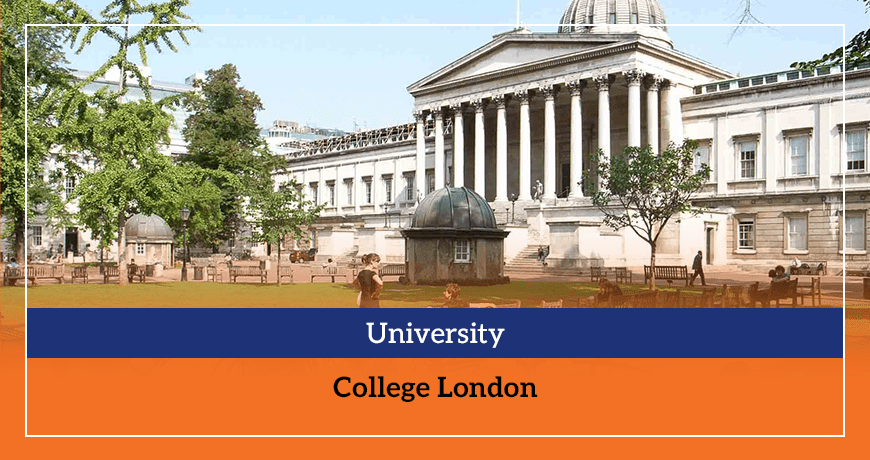Europe, a continent steeped in history, vibrant cultures, and boundless intellectual exploration, beckons students from across the globe. Imagine yourself strolling cobbled streets, discussing philosophy in ancient piazzas, or delving into scientific breakthroughs in cutting-edge labs.
Studying abroad in Europe is not just an educational pursuit; it's an intoxicating blend of personal growth, cultural immersion, and adventure that shapes you for life. But amidst this dazzling landscape of educational opportunities, an important question arises: what are the best colleges in Europe? Let's learn in detail.
Decoding College Selection
Balancing Academic Reputation and Personal Relevance
While university rankings like QS and Times Higher Education offer valuable insights, they're just one piece of the puzzle. Don't be solely swayed by a shiny number on a list. Remember, the best college for you is the one that aligns with your academic passions and career aspirations.
Here's how to strike the perfect balance:
- Dive deep into program offerings: Dig beyond the broad subject area and explore specific courses, research projects, and faculty expertise. Does the curriculum spark your curiosity and offer the depth you crave?
- Seek out niche strengths: Don't limit yourself to the "usual suspects." Research universities with hidden gems in your specific field. A smaller institution with a dedicated faculty might offer a more personalised and impactful learning experience.
- Consider career aspirations: How does the program prepare you for your desired career path? Does it offer internship opportunities, industry connections, or alumni networks that can propel you forward?
Key Factors to Consider When Choosing a European College
Beyond academic alignment, several crucial factors determine your European academic fit:
- Location: Vibrant city life, quaint countryside, or historical charm? Choose an environment that inspires and energizes you.
- Language: Immersion in a new language can be enriching, but assess your comfort level and identify language support services the university offers.
- Culture: Explore the university's cultural scene and surrounding community. Do the values and traditions resonate with your own?
- Cost and financial aid: Tuition fees and living expenses vary across Europe. Research available scholarships and financial aid options to make your dream a reality.
- Student life: Investigate student societies, extracurricular activities, and support systems available. Will you find your tribe and thrive in the university's social fabric?

Understanding Europe's Higher Education
Insights into the diverse educational systems across Europe
While a shared continent, Europe boasts a kaleidoscope of educational models. Here's a peek into some key variations:
- Continental vs. Anglo-Saxon systems: Continental systems, prevalent in France and Germany, emphasise theoretical knowledge and rigorous exams. Anglo-Saxon systems in the UK and Ireland adopt a more flexible, skills-based approach with continuous assessment.
- University types: Universities focusing on research and theoretical knowledge coexist with specialised institutions like Fachhochschulen in Germany or University Colleges of Applied Sciences in Ireland, which prioritise practical skills and vocational training.
- Degree structures: The Bologna Process has harmonised degree structures across much of Europe, with most countries offering Bachelor's (3-4 years), Master's (1-2 years), and Doctorate (3-5 years) degrees. However, variations still exist, particularly in older systems.
The Role of the Bologna Process in European Higher Education
The Bologna Process, a landmark initiative launched in 1999, has played a pivotal role in harmonising European higher education. Here's how:
- Increased Mobility: The Bologna Process facilitates student mobility across Europe by standardising degree structures and credits. Erasmus+, the EU's flagship exchange program, further fosters this movement.
- Enhanced Compatibility: The system makes it easier for universities to collaborate, develop joint programs, and exchange faculty and students.
- Quality Assurance: The Bologna Process promotes common quality standards, ensuring that European degrees are recognized and valued globally.

Top 10 Colleges in Europe for International Students
1. University of Oxford
Founded in 1096, Oxford is the best college in Europe. It is the oldest English-speaking university in the world and boasts a rich history of intellectual giants like Newton and Einstein. Its diverse colleges offer a vast range of subjects, with particular strengths in classics, humanities, and medicine. Oxford's unique tutorial system provides personalised learning, fostering close relationships between students and tutors.
Entry is highly competitive, requiring strong academic grades, an excellent command of the English language, and a compelling personal statement. Applicants must submit their UCAS application through the college of their choice, showcasing their academic achievements and potential.
2. University of Cambridge
Founded in 1209, Cambridge shares a long-standing rivalry with Oxford, offering exceptional academic programs in science, engineering, and humanities. Its famed collegiate system fosters a close-knit academic community, with students living and dining within their colleges. Cambridge boasts a vibrant research culture and is home to world-renowned scientists and mathematicians.
Similar to Oxford, admission is highly competitive, requiring top academic grades, strong English language skills, and a well-crafted personal statement. Applicants submit their UCAS application through their chosen college, highlighting their academic achievements and research interests.
3. Imperial College London
Established in 1907, Imperial College London is well-known for its academic excellence in Science, Engineering, and Medicine, focusing on cutting-edge research and real-world applications. Its strengths lie in its world-class faculty, state-of-the-art facilities, and strong industry connections, preparing graduates for successful careers in STEM fields.
Unique features include the interdisciplinary nature of its programs, which allow students to combine their interests in science and engineering to create innovative solutions. Admission requirements include excellent grades in relevant subjects, a strong personal statement demonstrating a passion for science and innovation, and outstanding performance in entrance tests like the UKCAT or GAMSAT.
4. ETH Zurich - Swiss Federal Institute of Technology
Founded in 1855, ETH Zurich is a prestigious technical university renowned for its cutting-edge research and academic rigour. Its strengths lie in engineering, science, and mathematics, attracting brilliant minds from around the world. ETH Zurich's emphasis on practical application and real-world problem-solving prepares students for impactful careers in various fields.
Admission is highly selective, requiring top grades in STEM subjects, strong English language skills, and excellent performance in the ETH entrance exams. Applicants submit their application directly to ETH Zurich, showcasing their academic achievements and motivation for studying at the university.

5. University College London
UCL is another of the best European colleges. Founded in 1826, it was the first university in England to be open to students of all backgrounds and religions. It remains a diverse and inclusive institution, offering various subjects in the humanities, sciences, and social sciences. UCL is renowned for its innovative research and interdisciplinary approach, which fosters collaboration across various fields.
Admission is competitive, requiring strong academic grades, excellent English language skills, and a well-written personal statement. Applicants submit their UCAS application directly to UCL, highlighting their academic achievements and desired program of study.
6. Technical University of Munich (TUM), Germany
Founded in 1827, TUM is Germany's premier technical university, boasting a rich legacy in science and engineering. Renowned for its research prowess, strong industry partnerships, and diverse educational offerings, it ranks among the top global universities in technology.
For a Bachelor's degree, a strong high school academic record with a minimum GPA of 2.0 (75%) and German language proficiency are essential. Master's applicants need a GPA of 3.6 (92%) and proof of English or German language proficiency. Some programs may require GRE or GATE scores.
7. University of Edinburgh, United Kingdom
Founded in 1583, Edinburgh is one of the oldest universities in the English-speaking world and is celebrated for its academic excellence across diverse disciplines, particularly humanities, medicine, and engineering. Its strong research focus and connections to renowned institutions like the Edinburgh Medical School add to its allure. It is also one of the best colleges in Europe for Americans.
Admission requirements include strong academic records, particularly in relevant subjects, are essential. English language proficiency tests such as TOEFL or IELTS are mandatory for international students. Some of the programs may require additional tests or interviews.
8. PSL University (France)
A newly formed institution (2019) by the merger of five prestigious Parisian universities, PSL University is a powerhouse in science, humanities, and social sciences. Its constituent universities boast rich histories and Nobel laureates among their alumni. It has a wide range of undergraduate and postgraduate programs across its five member institutions, each with its unique strengths and specialisations.
The university has a selective admissions process with varying requirements depending on the program, often involving competitive entrance exams, interviews, and language tests. Students require strong academic records, and English language proficiency tests such as TOEFL or IELTS are mandatory.
9. London School of Economics and Political Science (United Kingdom)
London School of Economics and Political Science is one of the top European colleges. Founded in 1895, LSE specialises in economics, politics, law, and social sciences. Its alumni include Nobel laureates, politicians, and influential economists. The university is known for its rigorous academic standards, cutting-edge research, and focus on real-world applications.
You need excellent academic records to get admission to LSE, and standardised test scores like the SAT or ACT are crucial. International applicants need English language proficiency tests like IELTS or TOEFL.
10. École polytechnique (École polytechnique fédérale de Lausanne), Switzerland
Founded in 1853, École Polytechnique is a leading Swiss university for science and technology, consistently ranked among the top global institutions in these fields. It emphasises cutting-edge research and international collaboration.
Strong academic records in mathematics and science are essential for getting admission to this prestigious university. Standardised test scores like the SAT or ACT may be required. English language proficiency is typically needed.

How to Apply to European Colleges
Understanding the general application process
- Find universities and programs that align with your interests and goals.
- Consider location, language, program structure, and tuition fees.
- Understand application platforms and deadlines for each program.
Required documents and preparations
- Gather official transcripts, translated if necessary.
- Check if standardised tests like SAT, ACT, IELTS, or TOEFL are required.
- Prepare a tailored CV highlighting skills and achievements.
- Create a compelling personal statement showcasing your passion and potential.
- Secure strong recommendation letters from qualified individuals.
- Don't forget passport or ID copies and any program-specific documents.
Standardized tests: What you need to know
- Research test requirements for your target universities.
- Utilize official resources and practice tests to improve your score.
- Register well in advance and be mindful of deadlines.
Crafting a compelling personal statement or essay
- Highlight your unique qualifications, skills, and experiences in your personal statement.
- Write concisely and engagingly, using vivid language.
- Address specific prompts provided by the universities.
- Proofread and revise thoroughly, seeking feedback if needed.
Securing strong letters of recommendation
- Choose people for recommendation who know you well and can speak to your strengths.
- Give them relevant information about your goals and achievements.
- Express your gratitude for their time and support.
European Student Life at Its Best
Understanding the vibrant campus life at these top institutions
- Unions & Clubs: From lively debates to salsa nights, student unions and clubs pulsate with energy and cater to every passion.
- Cultural Feasts: Immerse yourself in music, art, theatre, and vibrant international celebrations that paint the town red.
Accommodation options and social engagement opportunities
- Dorm Life: Build a close-knit community right on campus.
- Local Flats: Experience independence and explore charming neighbourhoods.
- Global Connections: Volunteer, exchange, and make friends worldwide.
- Travel Treasures: Explore Europe's wonders with student-friendly discounts.
Graduate Outcomes
Examining success rates: Employment and further studies
European universities boast impressive graduate employment rates, with many exceeding 90%. Renowned institutions like ETH Zurich and Ecole Polytechnique consistently place graduates in top companies worldwide.
Strong academic foundations from European universities pave the way for postgraduate studies at prestigious institutions worldwide. Many programs also offer integrated Master's degrees, streamlining your path to further specialization.
Celebrating triumphs: Notable alumni and their achievements
European universities have nurtured some of the most influential minds across various fields. Here are some of the examples:
- Albert Einstein
- Marie Curie
- Tim Berners-Lee
- Angela Merkel
- Federico Fellini
Financial Aspects
Tuition fees and living expenses across Europe
Europe offers a diverse range of tuition fees and living expenses, depending on factors like:
- Country & University
- Degree Level
- Field of Study
Estimated Ranges:
- Tuition Fees: €2,000-€25,000 per year (on average)
- Living Expenses: €500-€1,500 per month (on average)
Scholarships and financial aid
Many universities offer scholarships for international students, often based on academic merit or financial need. Research your target universities and explore their scholarship options. Some universities and governments offer student loans and grants for international students, though eligibility and terms may vary.
Conclusion
Choosing a college from the best colleges in Europe is an exciting yet challenging endeavour. Remember, the best college is the one that best aligns with your individual needs, aspirations, and dreams. So, dive deeper into the specific institutions that pique your interest.